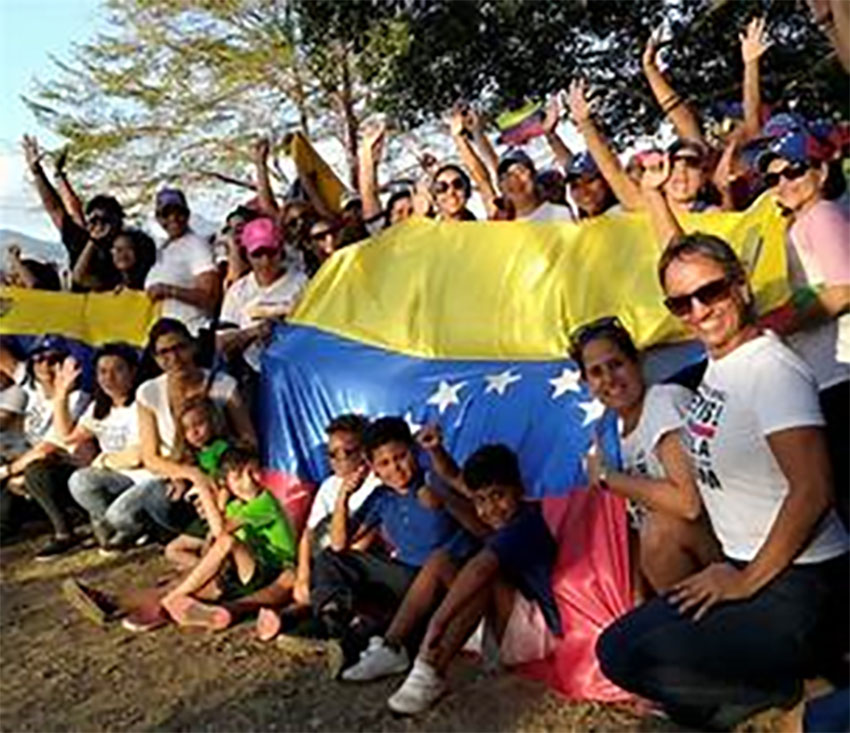Already having to endure the social and economic repercussions of waves of migrants from neighbouring Venezuela, CARICOM member state, Trinidad and Tobago is reportedly concerned that further political pressures imposed on Venezuela, through sanctions by the United States, will have the effect of increasing the number of Venezuelans seeking refuge in the country, creating further socio-economic challenges for the country. A report published in the Trinidad Guardian just over a week ago quoted Economist and International Relations expert and retired director of the Institute of International Relations of the University of the West Indies (UWI) Dr. Anthony Gonzalves as saying that any intensification of sanctions against an already socially and economically fragile Venezuela could trigger another wave of outward migration, and by extension, further waves of arrivals in Trinidad and Tobago.
“If sanctions hit foreign investment and export markets for oil as well as Venezuela’s capacity to borrow on the international market, they would have a strong negative impact on growth of the economy as well as employment and imports. Once jobs begin to get scarce and basic necessities, such as food and medicine are in short supply, migration will resume at the earlier rate. T&T will therefore see an increased flow of Venezuelan migrants under these conditions,” Dr. Gonsalves is quoted as saying. Trinidad and Tobago has, for years been ‘playing host’ to Venezuelan migrants, the vast majority live and work in the twin-island Republic illegally.
Guyana has shared the fate of its fellow CARICOM member country with Venezuelans entering Guyana not simply confining themselves to parts of Guyana close to the border with Venezuela, but have also found their way to the coast and the country’s capital, Georgetown, where they have even managed to establish businesses of their own or else, to find employment with local businesses. Soured relations between Washington and Caracas go back to the days of the Trump administration and stem from Washington’s questioning of the democratic bona fides of the administration of Venezuela’s President Nicholas Maduro.
Political ‘cat-sparring’ between Caracas and Washington has become commonplace in recent years and on January 30, the US State Department again raised the temperature, accusing the Government in Caracas of arresting members of what it sees as the country’s democratic opposition in a move seen as a precursor to banning them from participating in the 2024 presidential elections. It is feared that continued moves in that direction by the Maduro administration could prompt Washington to pull the plug on what is known as General License 44, the instrument that currently provides relief from the protracted sanctions that has devastated Caracas’ oil exports and by extension, the country’s economy. General License 44 expires on April 18 this year.
While Guyana has long been an option to Trinidad and Tobago for Venezuelans who no longer have an appetite for the socio-economic conditions in their own country, Venezuela’s recent dramatic ramping up of its claim to the Essequibo region, a bona fide part of Guyana’s territory may well have created strictures relating to cross border travel. While the temperature in relations between Georgetown and Caracas has dipped sharply over the past several weeks, Caracas and Port-of-Spain enjoys a seemingly smooth relationship, the result of an agreement brokered between the two countries for the exploitation of the Dragon Gas Field which, while owned by Venezuela, is within easy reach of neighbouring Trinidad and Tobago for purposes of exploitation by the CARICOM member country.
Analysts of Venezuela/United States relations have suggested that the perceived likelihood of Donald Trump returning to presidential office could be ‘bad news’ for Caracas since that eventuality could result in the re-imposition of economic sanctions on Venezuela and, by extension, an unraveling of whatever economic recovery the country has realized over the past year or so.







